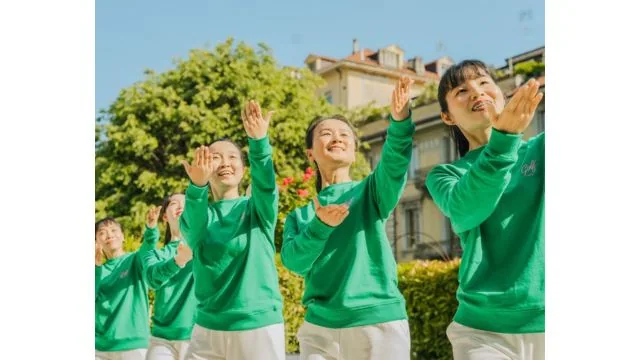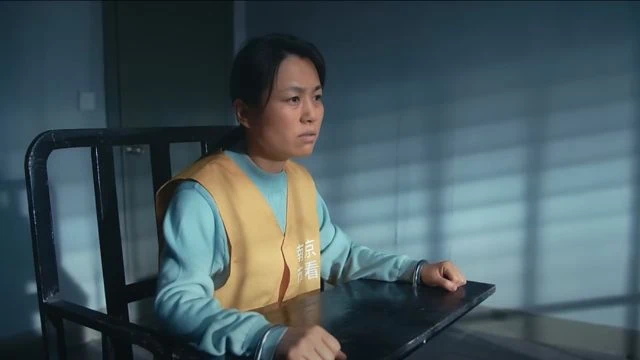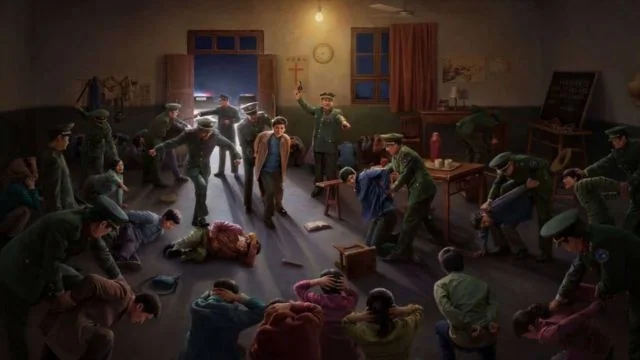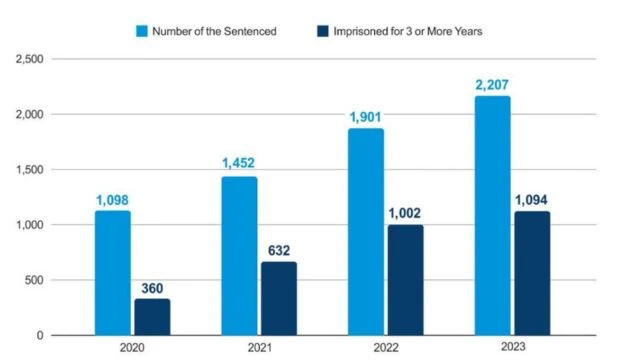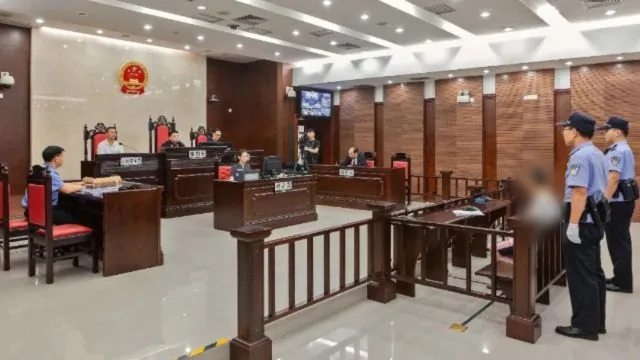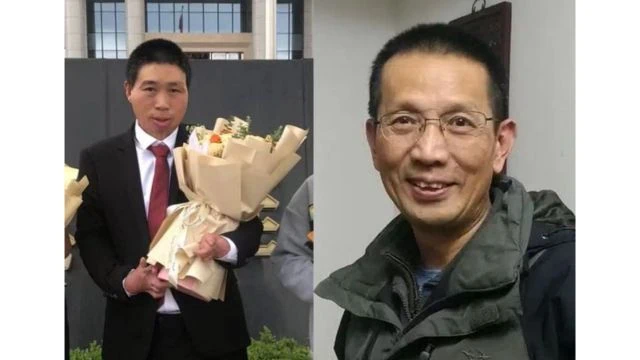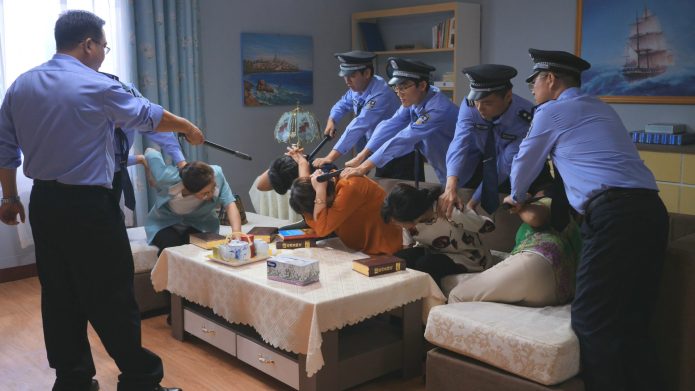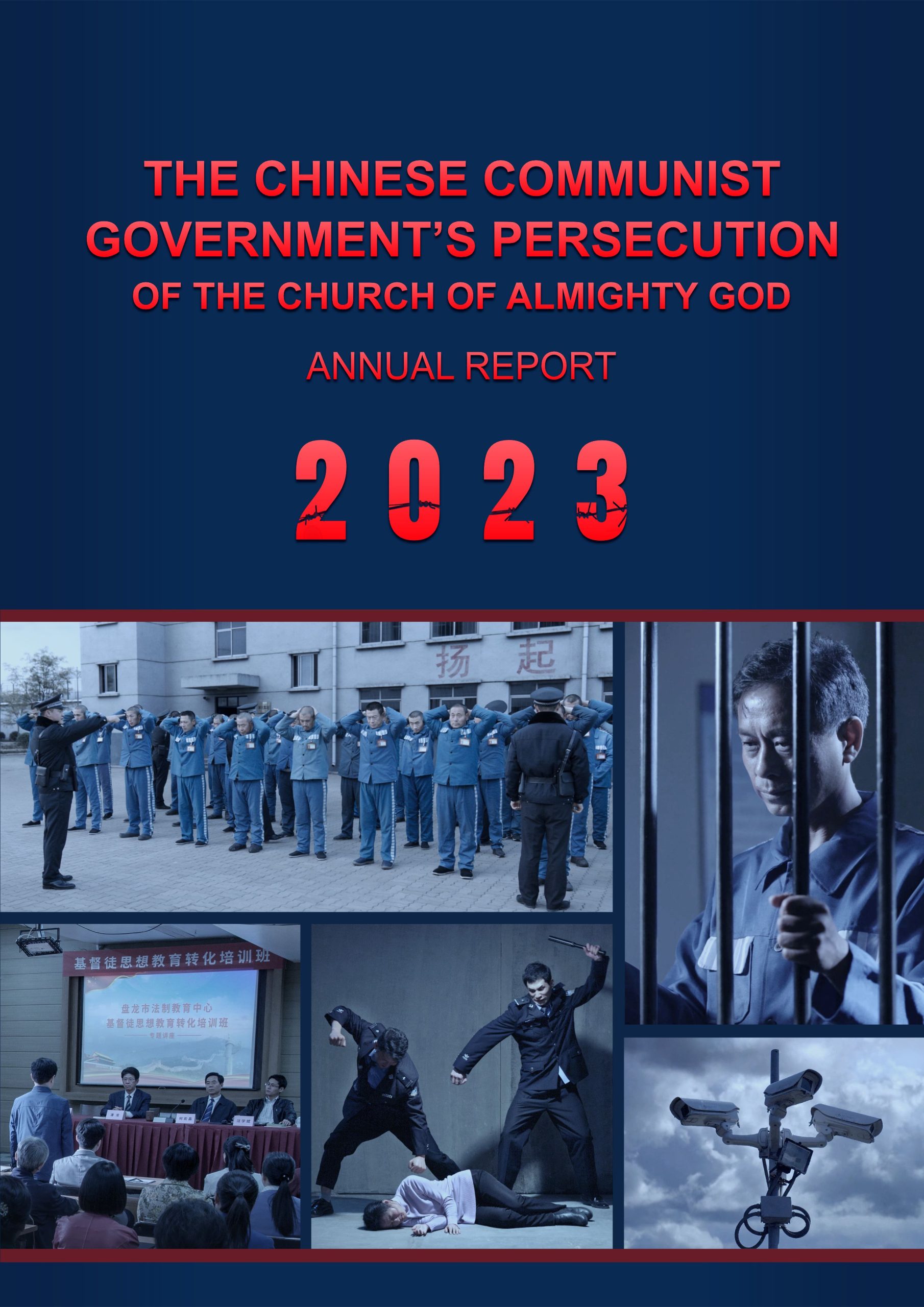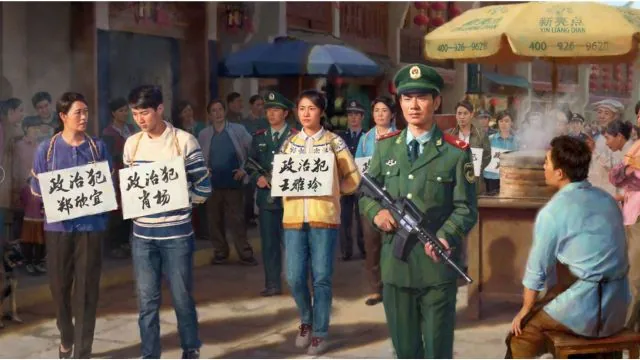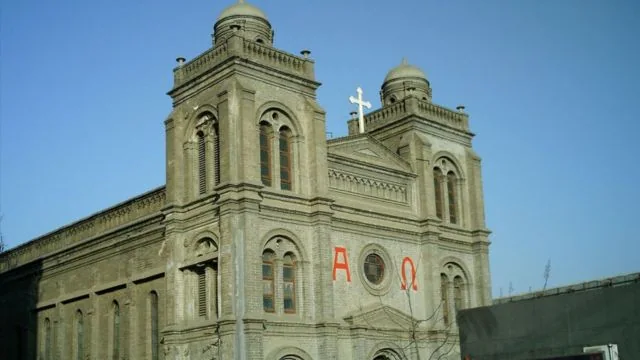‘We have to learn how to master that fear,’ says Carmen Lau.
By Alice Yam and Jasmine Man
2024.09.11
London
In 2021, former pro-democracy District Councilor Carmen Lau fled a crackdown on political opposition and dissent in Hong Kong, losing her political role in the process.
Now, she is spearheading international campaigning activities, trying to raise awareness of the erosion of Hong Kong’s promised freedoms and human rights protections.
When Lau first landed in the United Kingdom, she felt bereft. Her sense of purpose seemed to have evaporated before she had even turned 30, she told RFA Cantonese in a recent interview.
Yet, five years after the 2019 protest movement that sparked a crackdown on “hostile foreign forces” at Beijing’s behest, Lau is using her platform in exile to call for a boycott of elections to the Legislative Council, which took place under new rules ensuring only staunch supporters of Beijing could stand.
She has also taken a new job: project officer at the Washington-based Hong Kong Democracy Council, which aims to protect the city’s autonomy and basic freedoms.
“The biggest change for me over the last three years has been that I have gone from having no direction at all and not having a clue what I was doing, to growing and maturing alongside the Hong Kong community [in exile],” Lau said.
Lau is now convinced that international pressure can prevent the Chinese Communist Party from mistreating the city’s thousands of jailed protesters and political prisoners.
“We are seeing so many Hong Kong communities and organizations springing up in the U.K., and everyone is finding their role, finding different things to work on,” she said. “It’s not just advocacy, but also community cohesion and cultural work — even local issues.”
Low ebb
When Lau joined the Hong Kong Democracy Council last year, the international community of Hong Kongers was at a low ebb.
International attention on Hong Kong in the wake of the 2019 protest movement was fading with the Russian invasion of Ukraine and the Gaza conflict.
Yet the council knew that the city’s more than 1,800 political prisoners were at risk of mistreatment in Hong Kong’s prisons and detention facilities.
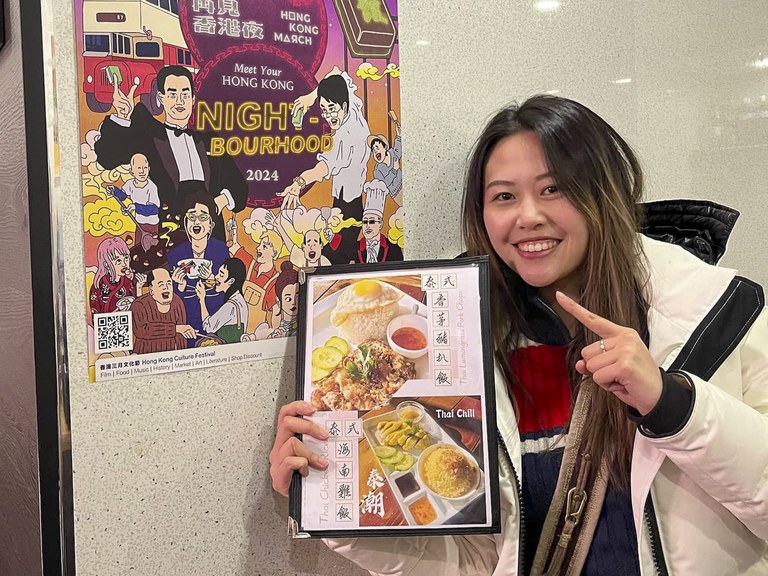
There were also concerns that Chinese pro-democracy activists had done little to bring about democratic change in China in all of their years in exile following the 1989 Tiananmen protests.
“That is a part of history we need to learn from, but I don’t think we will be the same,” Lau said. “Times change, and the people are different.”
But she warns herself regularly to avoid complacency.
“When you’re doing advocacy work, when you’ve said the same thing many times over, and you’ve got the rhetoric right, when you get into your comfort zone, you stop, and don’t feel like making further progress,” Lau said. “It’s something I keep warning myself about.”
‘Long arm’ law enforcement
There are also concerns about “long-arm” law enforcement by the Hong Kong authorities, in particular through loved ones still in the city.
Since the Hong Kong authorities passed a second security law known as Article 23 in March, fewer people have been turning out for demonstrations against the crackdown, even on foreign soil.
“There are also people in Hong Kong who say they are getting more and more frightened,” Lau said. “But I want to say to everyone, including myself, we have to learn how to master that fear.”
“There are fewer and fewer people still [doing activism], and we are entirely consumed with it, but I don’t want to see a situation where we’re alone,” she said.
Instead, Lau throws herself even more fully into lobbying and advocacy work, in the belief that it will make a difference for those left behind, particularly political prisoners.
She remains optimistic that the authorities will eventually reconsider the current level of political restriction, and restore the once freewheeling city to its former glory.
“[I do this] for freedom, in the sincere hope that the next time we meet, we can meet again in a free and democratic Hong Kong,” she said.
Translated by Luisetta Mudie. Edited by Malcolm Foster.
Source: Copyright © 1998-2016, RFA. Used with the permission of Radio Free Asia, 2025 M St. NW, Suite 300, Washington DC 20036. https://www.rfa.org.



